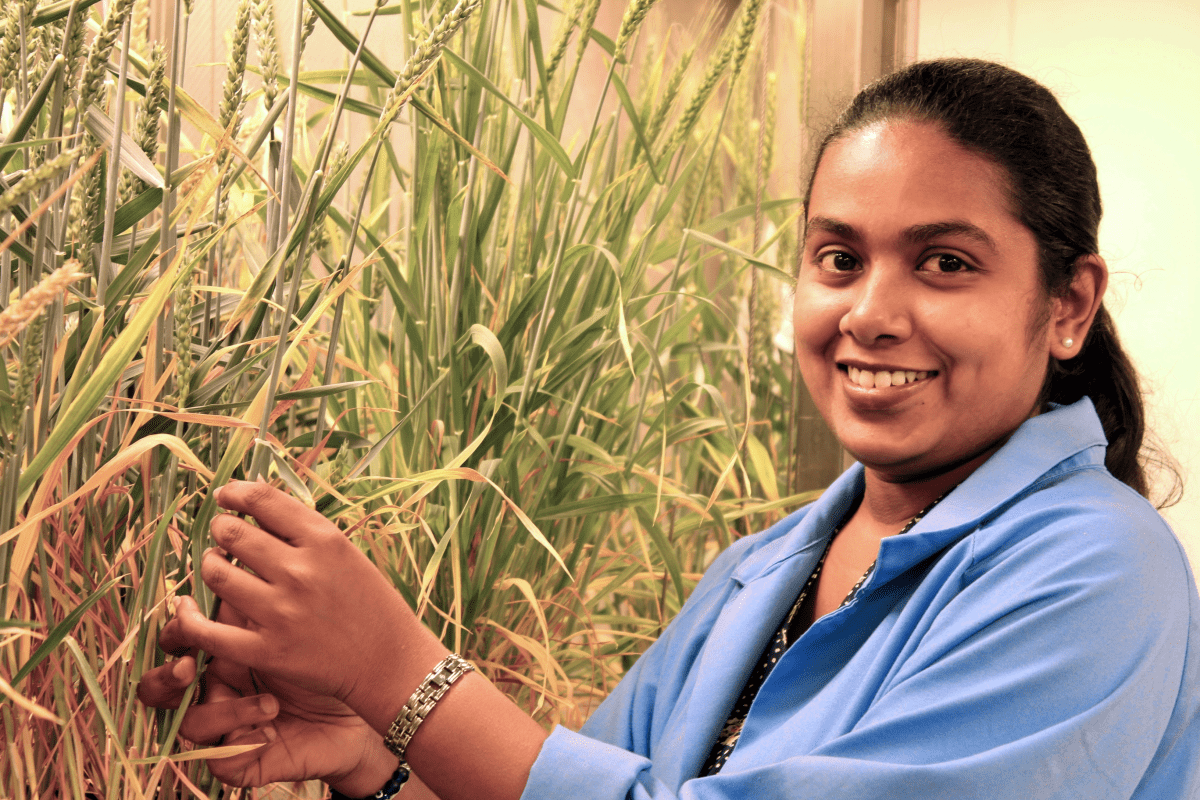
PhD student Bhagya Dissanayake with wheat plants grown under fully controlled conditions in the Plant Growth Facility. Photo: UWA
RESEARCHERS from the University of Western Australia (UWA) have unearthed new data about how wheat root tips respond to salinity as an important step towards improving salt tolerance.
The study, published in the Journal of Proteomics, was led by UWA PhD student Bhagya Dissanayake from the ARC Centre of Excellence in Plant Energy Biology.
It was co-authored by UWA Institute of Agriculture and School of Molecular Science’s Nicolas Taylor and fellow UWA researchers Christiana Staudinger, Rana Munns and Harvey Millar.
Wheat production is impacted by salinity in many parts of the world, accounting for up to 60 per cent yield loss.
Western Australia has more than 2 million hectares (Mha) of land currently impacted and a further 4Mha at high risk of salinity.
Exposure to salinity limits both the growth and yield of wheat crops by causing osmotic stress in plants during the initial phase of exposure, and ion toxicity in the later stages of development.
Roots are the first plant organ to perceive salt, and the stunting of the wheat-root system is understood to be caused by the root tips’ higher sensitivity to salinity.
Ms Dissanayake said the metabolic reasons for selective root tip sensitivity was largely unknown.
“Intensive efforts in breeding salt-tolerant wheat varieties have resulted in only limited success, because salt tolerance is a highly complex process that involves specific morphological, physiological regulatory and metabolic processes,” Ms Dissanayake said.
The study compared the profiles of mature-root versus root-tip proteomes, or sets of proteins, when exposed to salt-stress conditions.
The UWA research team examined the cellular processes that differentiate the root-tip and mature-root responses to salinity in the early salinity “shock phase” and the later salinity “adaptation” phase under salt stress conditions.
They found evidence that protein synthesis and energy production machinery was limited in root tips, while the same processes in mature roots was less affected by salt stress.
Professor Millar said the data improved understanding of wheat root responses under salinity.
“This is an important step for further investigation of molecular traits underpinning root characteristics, which will lead to improving salt tolerance of wheat,” he said.
Source: UWA

HAVE YOUR SAY